New to arrive in the Beelink SER lineup is the SER5 marketed as a ‘SER PRO’ and features one of last year’s AMD Ryzen 5000 H-series processors typically used in high-performance productivity and gaming laptops. Beelink kindly sent one for review and I’ve looked at performance running both Windows 11 and Ubuntu 22.04.
Beelink SER5 Hardware Overview
The Beelink SER5 physically consists of a 126 x 113 x 42mm (4.96 x 4.45 x 1.65 inches) square metal case. As an actively cooled mini PC, it uses AMD’s 7 nm Zen 3 Ryzen 5 5600H Cezanne processor which is a six-core 12-thread 3.3 GHz mobile processor boosting to 4.2 GHz with Radeon Graphics.
The front panel has an illuminated power button, a 3.5mm headphone jack, a Type-C USB 3.1 port with Alternate Mode, dual USB 3.1 ports, and a reset pin-hole ‘CLR CMOS’. The rear panel includes a gigabit Ethernet port, a USB 3.1 port and a USB 2.0 port, dual HDMI 2.0 ports, and the power jack.
Internally, there is an M.2 2230 WiFi 6E (or 802.11ax) Mediatek MT7921K card which supports the new 6 GHz band, an M.2 2280 NVMe PCIe Gen 3.0 SSD drive (the review model included a 500 GB Kingston NV1 drive complete with Windows 11 Pro installed) and the ability to add a 2.5” SATA drive to the lid which is connected to the motherboard via a short ZIF cable:
There are also two SODIMM memory slots supporting up to 64 GB of memory and the review model included two sticks of Crucial 16 GB DDR4 3200 MHz memory for a total of 32 GB noting that this particular memory is single-rank:
The specifications state:
and the Beelink webpage lists all of the USB ports as 3.0 so I tested them together with the Type-C USB port using a Samsung 980 PRO PCle 4.0 NVMe M.2 SSD housed in an ‘USB to M.2 NVMe adapter’ (ORICO M2PAC3-G20 M.2 NVMe SSD Enclosure) which showed that all the ‘blue’ USB ports and the Type-C USB port were USB 3.1 (USB 3.2 Gen 2×1 i.e. 10 Gbit/s):
however, the ‘black’ rear USB port was only USB 2.0:
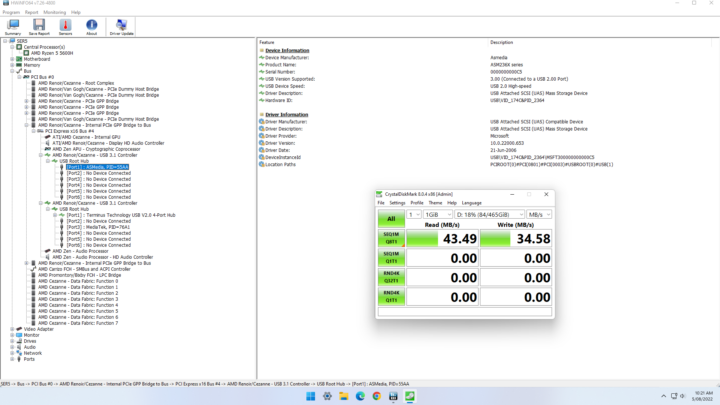
Additionally, the Type-C port also supports video output through ‘Alternate Mode’:
so the device can support three 4K displays.
Box contents
In the box, you get a power adapter and cord, both a short and a longer HDMI cable, a VESA mounting bracket together with a small packet of miscellaneous screws. Also included is a multilingual user manual:
Review Methodology
When reviewing mini PCs, I typically look at their performance under both Windows and Linux (Ubuntu) and compare them against some of the more recently released mini PCs. I now review using Windows 11 version 21H2 and Ubuntu 22.04.1 LTS. I test with a selection of commonly used Windows benchmarks and/or equivalents for Linux together with Thomas Kaiser’s ‘sbc-bench’ which is a small set of different CPU performance tests focusing on server performance when run on Ubuntu. On Ubuntu, I also compile the v5.15 Linux kernel using the default config as a test of performance using a real-world scenario.
Prior to benchmarking, I perform all necessary installations and updates to run the latest version of the OS. I also capture some basic details of the device for each OS.
Installation Issues
On Windows running the pre-installed AMD Radeon Software (version 21.6.1) errored with a software and driver version mismatch:
however, this was easily resolved by downloading and installing the latest version (22.7.1):
When booting Ubuntu 22.04.1 there are various BIOS errors being reported in the ‘dmesg’ although the significance of which has not been determined:
Running the benchmarks went smoothly with the exception of the ‘OpenSSL’ test from ‘sbc-bench’. When running the test the results were inconsistent including across runs. Both the reason and implications of this are not currently known and as such will be ’taken with a huge grain of salt’:
Windows 11 performance on Beelink SER5 mini PC
The Beelink SER5 came installed with a licensed copy of Windows 11 Pro version 21H2 which after applying updates was build 22000.832. A quick look at the hardware information shows it is aligned to the specification:
A brief check showed working audio, Wi-Fi, Bluetooth, and Ethernet.
I then set the power mode to ‘High performance’ and ran my standard set of benchmarking tools to look at performance under Windows:
I also tested Cinebench R23:
All these results can then be compared with other recent mini PCs:
The Beelink SER5 performance is quite similar to the SER4. The SER5 (Ryzen 5 5600H) reduced core count is mitigated by the higher base frequency for results when compared to the Beelink SER4 (Ryzen 7 4800U) and the faster drive performance results in an overall improvement for the SER5 over the SER4 despite the lower graphics of RX Vega 7 verses RX Vega 8.
Ubuntu 22.04 Performance
After shrinking the Windows partition in half and creating a new partition I installed Ubuntu as dual boot using an Ubuntu 22.04 ISO as the first point release has been delayed and it was necessary to perform a manual upgrade to 22.04.1. After installation and updates, a brief check showed working audio, Wi-Fi, Bluetooth, and Ethernet.
The key hardware information under Ubuntu 22.04.1 is as follows:
|
1 2 3 4 5 6 7 8 9 10 11 12 13 14 15 16 17 18 19 20 21 22 23 24 25 26 27 28 29 30 31 32 33 34 35 36 37 38 39 40 41 42 43 44 45 46 47 48 49 50 51 52 53 54 55 56 57 58 59 60 61 62 63 64 65 66 67 68 69 70 71 72 73 74 75 76 77 78 79 80 81 82 83 84 85 86 87 88 89 90 91 92 93 94 95 96 97 98 99 100 101 102 103 104 105 106 107 108 109 110 111 112 113 114 115 116 117 118 119 120 121 122 123 124 125 126 127 128 129 130 131 132 133 134 135 136 137 138 139 140 141 142 143 144 145 146 147 148 149 150 151 152 153 154 155 156 157 158 159 160 161 162 163 164 165 166 167 168 169 170 171 172 173 174 175 176 177 178 179 180 181 182 183 184 185 186 187 188 189 190 191 192 193 194 195 196 197 198 199 200 201 202 203 204 205 206 207 208 209 210 211 212 213 214 215 216 217 218 219 220 221 222 223 224 225 226 227 228 229 230 231 232 233 234 235 236 237 238 239 240 241 242 243 244 245 246 |
linuxium@SER5:~$ lsb_release -a Distributor ID: Ubuntu Description: Ubuntu 22.04.1 LTS Release: 22.04 Codename: jammy linuxium@SER5:~$ linuxium@SER5:~$ uname -a Linux SER5 5.15.0-43-generic #46-Ubuntu SMP Tue Jul 12 10:30:17 UTC 2022 x86_64 x86_64 x86_64 GNU/Linux linuxium@SER5:~$ linuxium@SER5:~$ inxi -Fzc0y-1 System: Kernel: 5.15.0-43-generic x86_64 bits: 64 Console: pty pts/1 Distro: Ubuntu 22.04.1 LTS (Jammy Jellyfish) Machine: Type: Mini-pc Mobo: AZW model: SER v: V01 serial: <filter> UEFI: American Megatrends LLC. v: SER_V1.14_P4C7M43 date: 07/08/2022 CPU: Info: 6-core model: AMD Ryzen 5 5600H with Radeon Graphics bits: 64 type: MT MCP cache: L2: 3 MiB Speed (MHz): avg: 3010 min/max: 400/4280 cores: 1: 4121 2: 3264 3: 2611 4: 2614 5: 3265 6: 3266 7: 2614 8: 2613 9: 3268 10: 3264 11: 2612 12: 2614 Graphics: Device-1: Advanced Micro Devices [AMD/ATI] Cezanne driver: amdgpu v: kernel Display: server: X.Org v: 1.22.1.1 driver: gpu: amdgpu note: X driver n/a resolution: 1920x1080~60Hz OpenGL: renderer: AMD RENOIR (LLVM 13.0.1 DRM 3.42 5.15.0-43-generic) v: 4.6 Mesa 22.0.5 Audio: Device-1: Advanced Micro Devices [AMD/ATI] Renoir Radeon High Definition Audio driver: snd_hda_intel Device-2: Advanced Micro Devices [AMD] Raven/Raven2/FireFlight/Renoir Audio Processor driver: N/A Device-3: Advanced Micro Devices [AMD] Family 17h HD Audio driver: snd_hda_intel Sound Server-1: ALSA v: k5.15.0-43-generic running: yes Sound Server-2: PulseAudio v: 15.99.1 running: yes Sound Server-3: PipeWire v: 0.3.48 running: yes Network: Device-1: Realtek RTL8111/8168/8411 PCI Express Gigabit Ethernet driver: r8169 IF: enp1s0 state: up speed: 1000 Mbps duplex: full mac: <filter> Device-2: MEDIATEK driver: mt7921e IF: wlp2s0 state: down mac: <filter> Bluetooth: Device-1: MediaTek Wireless_Device type: USB driver: btusb Report: hciconfig ID: hci0 state: up address: <filter> bt-v: 3.0 Drives: Local Storage: total: 465.76 GiB used: 12.34 GiB (2.6%) ID-1: /dev/nvme0n1 vendor: Kingston model: SNVS500G size: 465.76 GiB Partition: ID-1: / size: 227.21 GiB used: 12.31 GiB (5.4%) fs: ext4 dev: /dev/nvme0n1p5 ID-2: /boot/efi size: 96 MiB used: 32.3 MiB (33.7%) fs: vfat dev: /dev/nvme0n1p1 Swap: ID-1: swap-1 type: file size: 2 GiB used: 0 KiB (0.0%) file: /swapfile Sensors: System Temperatures: cpu: N/A mobo: N/A gpu: amdgpu temp: 25.0 C Fan Speeds (RPM): N/A Info: Processes: 298 Uptime: 1h 14m Memory: 30.76 GiB used: 1.46 GiB (4.8%) Shell: new-review-test inxi: 3.3.13 linuxium@SER5:~$ linuxium@SER5:~$ df -h Filesystem Size Used Avail Use% Mounted on tmpfs 3.1G 1.9M 3.1G 1% /run /dev/nvme0n1p5 228G 13G 204G 6% / tmpfs 16G 0 16G 0% /dev/shm tmpfs 5.0M 4.0K 5.0M 1% /run/lock /dev/nvme0n1p1 96M 33M 64M 34% /boot/efi tmpfs 3.1G 2.4M 3.1G 1% /run/user/1000 linuxium@SER5:~$ linuxium@SER5:~$ lsblk -a NAME MAJ:MIN RM SIZE RO TYPE MOUNTPOINTS loop0 7:0 0 4K 1 loop /snap/bare/5 loop1 7:1 0 61.9M 1 loop /snap/core20/1405 loop2 7:2 0 155.6M 1 loop /snap/firefox/1232 loop3 7:3 0 248.8M 1 loop /snap/gnome-3-38-2004/99 loop4 7:4 0 81.3M 1 loop /snap/gtk-common-themes/1534 loop5 7:5 0 45.9M 1 loop /snap/snap-store/575 loop6 7:6 0 43.6M 1 loop /snap/snapd/15177 loop7 7:7 0 284K 1 loop /snap/snapd-desktop-integration/10 loop8 7:8 0 0B 0 loop nvme0n1 259:0 0 465.8G 0 disk ├─nvme0n1p1 259:1 0 100M 0 part /boot/efi ├─nvme0n1p2 259:2 0 128M 0 part ├─nvme0n1p3 259:3 0 231.9G 0 part ├─nvme0n1p4 259:4 0 1.7G 0 part └─nvme0n1p5 259:5 0 231.9G 0 part / linuxium@SER5:~$ linuxium@SER5:~$ sudo lshw -C cpu *-cpu description: CPU product: AMD Ryzen 5 5600H with Radeon Graphics vendor: Advanced Micro Devices [AMD] physical id: 18 bus info: cpu@0 version: 25.80.0 serial: <filter> slot: FP6 size: 3320MHz capacity: 4280MHz width: 64 bits clock: 100MHz capabilities: lm fpu fpu_exception wp vme de pse tsc msr pae mce cx8 apic sep mtrr pge mca cmov pat pse36 clflush mmx fxsr sse sse2 ht syscall nx mmxext fxsr_opt pdpe1gb rdtscp x86-64 constant_tsc rep_good nopl nonstop_tsc cpuid extd_apicid aperfmperf rapl pni pclmulqdq monitor ssse3 fma cx16 sse4_1 sse4_2 movbe popcnt aes xsave avx f16c rdrand lahf_lm cmp_legacy svm extapic cr8_legacy abm sse4a misalignsse 3dnowprefetch osvw ibs skinit wdt tce topoext perfctr_core perfctr_nb bpext perfctr_llc mwaitx cpb cat_l3 cdp_l3 hw_pstate ssbd mba ibrs ibpb stibp vmmcall fsgsbase bmi1 avx2 smep bmi2 erms invpcid cqm rdt_a rdseed adx smap clflushopt clwb sha_ni xsaveopt xsavec xgetbv1 xsaves cqm_llc cqm_occup_llc cqm_mbm_total cqm_mbm_local clzero irperf xsaveerptr rdpru wbnoinvd cppc arat npt lbrv svm_lock nrip_save tsc_scale vmcb_clean flushbyasid decodeassists pausefilter pfthreshold avic v_vmsave_vmload vgif v_spec_ctrl umip pku ospke vaes vpclmulqdq rdpid overflow_recov succor smca fsrm cpufreq configuration: cores=6 enabledcores=6 microcode=173015052 threads=12 linuxium@SER5:~$ linuxium@SER5:~$ sudo lshw -C memory *-firmware description: BIOS vendor: American Megatrends International, LLC. physical id: 0 version: SER_V1.14_P4C7M43 date: 07/08/2022 size: 64KiB capabilities: pci upgrade shadowing cdboot bootselect socketedrom edd int13floppynec int13floppytoshiba int13floppy360 int13floppy1200 int13floppy720 int13floppy2880 int5printscreen int9keyboard int14serial int17printer int10video acpi usb biosbootspecification uefi *-memory description: System Memory physical id: 13 slot: System board or motherboard size: 32GiB *-bank:0 description: SODIMM DDR4 Synchronous Unbuffered (Unregistered) 3200 MHz (0.3 ns) product: CT16G4SFS832A.C8FE vendor: Unknown physical id: 0 serial: <filter> slot: DIMM 0 size: 16GiB width: 64 bits clock: 3200MHz (0.3ns) *-bank:1 description: SODIMM DDR4 Synchronous Unbuffered (Unregistered) 3200 MHz (0.3 ns) product: CT16G4SFS832A.C8FE vendor: Unknown physical id: 1 serial: <filter> slot: DIMM 0 size: 16GiB width: 64 bits clock: 3200MHz (0.3ns) *-cache:0 description: L1 cache physical id: 15 slot: L1 - Cache size: 384KiB capacity: 384KiB clock: 1GHz (1.0ns) capabilities: pipeline-burst internal write-back unified configuration: level=1 *-cache:1 description: L2 cache physical id: 16 slot: L2 - Cache size: 3MiB capacity: 3MiB clock: 1GHz (1.0ns) capabilities: pipeline-burst internal write-back unified configuration: level=2 *-cache:2 description: L3 cache physical id: 17 slot: L3 - Cache size: 16MiB capacity: 16MiB clock: 1GHz (1.0ns) capabilities: pipeline-burst internal write-back unified configuration: level=3 linuxium@SER5:~$ linuxium@SER5:~$ free -mh total used free shared buff/cache available Mem: 30Gi 1.0Gi 28Gi 45Mi 865Mi 29Gi Swap: 2.0Gi 0B 2.0Gi linuxium@SER5:~$ linuxium@SER5:~$ sudo lshw -C network *-network description: Ethernet interface product: RTL8111/8168/8411 PCI Express Gigabit Ethernet Controller vendor: Realtek Semiconductor Co., Ltd. physical id: 0 bus info: pci@0000:01:00.0 logical name: enp1s0 version: 15 serial: <filter> size: 1Gbit/s capacity: 1Gbit/s width: 64 bits clock: 33MHz capabilities: pm msi pciexpress msix bus_master cap_list ethernet physical tp mii 10bt 10bt-fd 100bt 100bt-fd 1000bt-fd autonegotiation configuration: autonegotiation=on broadcast=yes driver=r8169 driverversion=5.15.0-43-generic duplex=full firmware=rtl8168h-2_0.0.2 02/26/15 ip=<filter> latency=0 link=yes multicast=yes port=twisted pair speed=1Gbit/s resources: irq:56 ioport:f000(size=256) memory:fcf04000-fcf04fff memory:fcf00000-fcf03fff *-network description: Wireless interface product: MEDIATEK Corp. vendor: MEDIATEK Corp. physical id: 0 bus info: pci@0000:02:00.0 logical name: wlp2s0 version: 00 serial: <filter> width: 64 bits clock: 33MHz capabilities: pciexpress msi pm bus_master cap_list ethernet physical wireless configuration: broadcast=yes driver=mt7921e driverversion=5.15.0-43-generic firmware=____010000-20220209150915 latency=0 link=no multicast=yes wireless=IEEE 802.11 resources: irq:69 memory:e0300000-e03fffff memory:e0400000-e0403fff memory:e0404000-e0404fff linuxium@SER5:~$ linuxium@SER5:~$ sudo lshw -C display *-display description: VGA compatible controller product: Cezanne vendor: Advanced Micro Devices, Inc. [AMD/ATI] physical id: 0 bus info: pci@0000:04:00.0 logical name: /dev/fb0 version: c6 width: 64 bits clock: 33MHz capabilities: pm pciexpress msi msix vga_controller bus_master cap_list fb configuration: depth=32 driver=amdgpu latency=0 resolution=2560,1080 resources: irq:45 memory:d0000000-dfffffff memory:e0000000-e01fffff ioport:e000(size=256) memory:fcc00000-fcc7ffff linuxium@SER5:~$ linuxium@SER5:~$ dmesg | egrep -i sdhci\|mmc [ 0.269965] PCI: MMCONFIG for domain 0000 [bus 00-7f] at [mem 0xf0000000-0xf7ffffff] (base 0xf0000000) [ 0.269965] PCI: MMCONFIG at [mem 0xf0000000-0xf7ffffff] reserved in E820 [ 0.288974] acpi PNP0A08:00: [Firmware Info]: MMCONFIG for domain 0000 [bus 00-7f] only partially covers this bridge linuxium@SER5:~$ linuxium@SER5:~$ lsusb Bus 004 Device 001: ID 1d6b:0003 Linux Foundation 3.0 root hub Bus 003 Device 002: ID 0e8d:0608 MediaTek Inc. Wireless_Device Bus 003 Device 001: ID 1d6b:0002 Linux Foundation 2.0 root hub Bus 002 Device 001: ID 1d6b:0003 Linux Foundation 3.0 root hub Bus 001 Device 008: ID 093a:2510 Pixart Imaging, Inc. Optical Mouse Bus 001 Device 009: ID 10d5:55a4 Uni Class Technology Co., Ltd 4 Port KVMSwicther Bus 001 Device 007: ID 045e:07f8 Microsoft Corp. Wired Keyboard 600 (model 1576) Bus 001 Device 006: ID 1a40:0101 Terminus Technology Inc. Hub Bus 001 Device 001: ID 1d6b:0002 Linux Foundation 2.0 root hub linuxium@SER5:~$ linuxium@SER5:~$ lspci -nn 00:00.0 Host bridge [0600]: Advanced Micro Devices, Inc. [AMD] Renoir/Cezanne Root Complex [1022:1630] 00:00.2 IOMMU [0806]: Advanced Micro Devices, Inc. [AMD] Renoir/Cezanne IOMMU [1022:1631] 00:01.0 Host bridge [0600]: Advanced Micro Devices, Inc. [AMD] Renoir PCIe Dummy Host Bridge [1022:1632] 00:02.0 Host bridge [0600]: Advanced Micro Devices, Inc. [AMD] Renoir PCIe Dummy Host Bridge [1022:1632] 00:02.1 PCI bridge [0604]: Advanced Micro Devices, Inc. [AMD] Renoir/Cezanne PCIe GPP Bridge [1022:1634] 00:02.2 PCI bridge [0604]: Advanced Micro Devices, Inc. [AMD] Renoir/Cezanne PCIe GPP Bridge [1022:1634] 00:02.3 PCI bridge [0604]: Advanced Micro Devices, Inc. [AMD] Renoir/Cezanne PCIe GPP Bridge [1022:1634] 00:08.0 Host bridge [0600]: Advanced Micro Devices, Inc. [AMD] Renoir PCIe Dummy Host Bridge [1022:1632] 00:08.1 PCI bridge [0604]: Advanced Micro Devices, Inc. [AMD] Renoir Internal PCIe GPP Bridge to Bus [1022:1635] 00:08.2 PCI bridge [0604]: Advanced Micro Devices, Inc. [AMD] Renoir Internal PCIe GPP Bridge to Bus [1022:1635] 00:14.0 SMBus [0c05]: Advanced Micro Devices, Inc. [AMD] FCH SMBus Controller [1022:790b] (rev 51) 00:14.3 ISA bridge [0601]: Advanced Micro Devices, Inc. [AMD] FCH LPC Bridge [1022:790e] (rev 51) 00:18.0 Host bridge [0600]: Advanced Micro Devices, Inc. [AMD] Cezanne Data Fabric; Function 0 [1022:166a] 00:18.1 Host bridge [0600]: Advanced Micro Devices, Inc. [AMD] Cezanne Data Fabric; Function 1 [1022:166b] 00:18.2 Host bridge [0600]: Advanced Micro Devices, Inc. [AMD] Cezanne Data Fabric; Function 2 [1022:166c] 00:18.3 Host bridge [0600]: Advanced Micro Devices, Inc. [AMD] Cezanne Data Fabric; Function 3 [1022:166d] 00:18.4 Host bridge [0600]: Advanced Micro Devices, Inc. [AMD] Cezanne Data Fabric; Function 4 [1022:166e] 00:18.5 Host bridge [0600]: Advanced Micro Devices, Inc. [AMD] Cezanne Data Fabric; Function 5 [1022:166f] 00:18.6 Host bridge [0600]: Advanced Micro Devices, Inc. [AMD] Cezanne Data Fabric; Function 6 [1022:1670] 00:18.7 Host bridge [0600]: Advanced Micro Devices, Inc. [AMD] Cezanne Data Fabric; Function 7 [1022:1671] 01:00.0 Ethernet controller [0200]: Realtek Semiconductor Co., Ltd. RTL8111/8168/8411 PCI Express Gigabit Ethernet Controller [10ec:8168] (rev 15) 02:00.0 Network controller [0280]: MEDIATEK Corp. Device [14c3:0608] 03:00.0 Non-Volatile memory controller [0108]: Kingston Technology Company, Inc. Device [2646:500f] (rev 03) 04:00.0 VGA compatible controller [0300]: Advanced Micro Devices, Inc. [AMD/ATI] Cezanne [1002:1638] (rev c6) 04:00.1 Audio device [0403]: Advanced Micro Devices, Inc. [AMD/ATI] Renoir Radeon High Definition Audio Controller [1002:1637] 04:00.2 Encryption controller [1080]: Advanced Micro Devices, Inc. [AMD] Family 17h (Models 10h-1fh) Platform Security Processor [1022:15df] 04:00.3 USB controller [0c03]: Advanced Micro Devices, Inc. [AMD] Renoir/Cezanne USB 3.1 [1022:1639] 04:00.4 USB controller [0c03]: Advanced Micro Devices, Inc. [AMD] Renoir/Cezanne USB 3.1 [1022:1639] 04:00.5 Multimedia controller [0480]: Advanced Micro Devices, Inc. [AMD] Raven/Raven2/FireFlight/Renoir Audio Processor [1022:15e2] (rev 01) 04:00.6 Audio device [0403]: Advanced Micro Devices, Inc. [AMD] Family 17h (Models 10h-1fh) HD Audio Controller [1022:15e3] 05:00.0 SATA controller [0106]: Advanced Micro Devices, Inc. [AMD] FCH SATA Controller [AHCI mode] [1022:7901] (rev 81) 05:00.1 SATA controller [0106]: Advanced Micro Devices, Inc. [AMD] FCH SATA Controller [AHCI mode] [1022:7901] (rev 81) linuxium@SER5:~$ |
I then set the CPU Scaling Governor to ‘performance’ and ran my Linux benchmarks for which the majority of the results are text based but the graphical ones included:
and the latter can be directly compared to when run in Windows using the OpenGL render:
I also ran PassMark PerformanceTest Linux:
which can be directly compared to the results from when it was run on Windows:
The complete results together with a comparison against other recent mini PCs are:
Again the higher single core base frequency and faster drive speeds are evident when comparing the SER5 (Ryzen 5 5600H) to the SER4 (Ryzen 7 4800U) as is the slightly reduced graphics performance.
Video playback in browsers & Kodi
For real-world testing, I played some videos in Edge, Chrome, and Kodi on Windows and in Firefox, Chrome, and Kodi on Ubuntu. No issues were encountered playing up to 4K 60 FPS videos, however Chrome did occasionally drop frames on Ubuntu for the highest quality playback:
Gaming on Beelink SER5/AMD Ryzen 5 5600H
I also tested three games under Steam (Counter-Strike: Global Offensive, Grand Theft Auto V and Shadow Of The Tomb Raider) at both 1080p and 720p using default settings in both CS:GO and GTA V and with the graphical preset of ‘high’ and ‘low’ in the built-in benchmark of SOTTR. The very interesting average FPS results were as follows:
with Ubuntu out-performing Windows likely due to Valve’s ongoing commitment to Linux.
Thermals
The Beelink SER5 uses active cooling. Running a stress test on Ubuntu saw the CPU temperature climb to a peak of 83°C where it remained for the duration of the test:
During the stress test, the maximum temperature I recorded on the top of the device was around 30.2°C in an ambient room temperature of 15.6°C and the fan was hardly audible reaching 38 dBA on my sound meter next to the device during the test. If the CPU frequency is monitored during the stress test it can be seen that it averages 3580 MHz:
Networking
Network connectivity throughput was measured on Ubuntu using ‘iperf3’:
and showed good WiFi performance.
Power Consumption
Power consumption was measured as follows:
- Powered off (shutdown) – 0.3 Watts
- BIOS – 20.5 Watts
- GRUB boot menu – 19.1 Watts
- Idle – 5.3 Watts (Windows) and 3.7 Watts (Ubuntu)
- CPU stressed* – 46.5 Watts (Windows ‘cinebench’) and 42.4 Watts (Ubuntu ‘stress’)
*The power figures fluctuate due to the fan so the value is the average of the median high and median low power readings.
BIOS
Powering up the mini PC and hitting the F7 key results in a boot menu that includes access to the BIOS which is relatively unrestricted.
Final Observations
Whilst the SER5 uses a newer Zen architecture the performance is not substantially different from the SER4 so this mini PC should be seen as an alternative rather than as an upgrade. Overall the performance is very good.
| Highlights | Limitations |
|---|---|
| Excellent WiFi performance | Single-rank memory |
| Additional SATA drive expandability | No SD card slot |
I’d like to thank Beelink for providing the Beelink SER5 for review. It retails at around $469 for a slightly lower spec’ed configuration of 16GB/500GB on the Beelink store, and can also be found on Amazon US.

Ian is interested in mini PCs and helps with reviews of mini PCs running Windows, Ubuntu and other Linux operating systems. You can follow him on Facebook or Twitter.
Support CNX Software! Donate via cryptocurrencies, become a Patron on Patreon, or purchase goods on Amazon or Aliexpress. We also use affiliate links in articles to earn commissions if you make a purchase after clicking on those links.


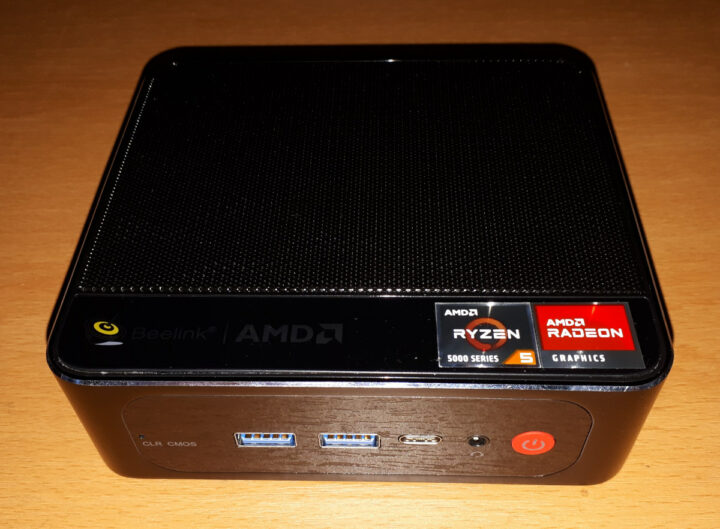
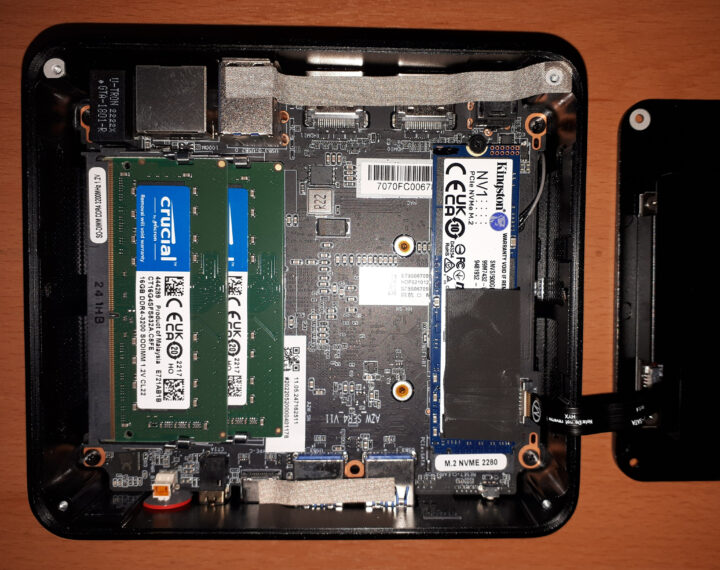
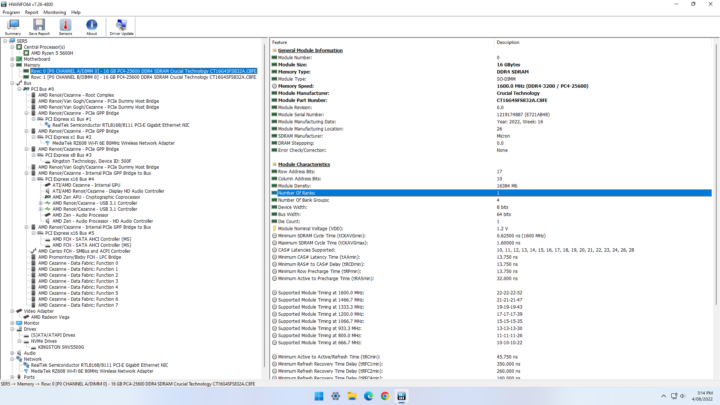
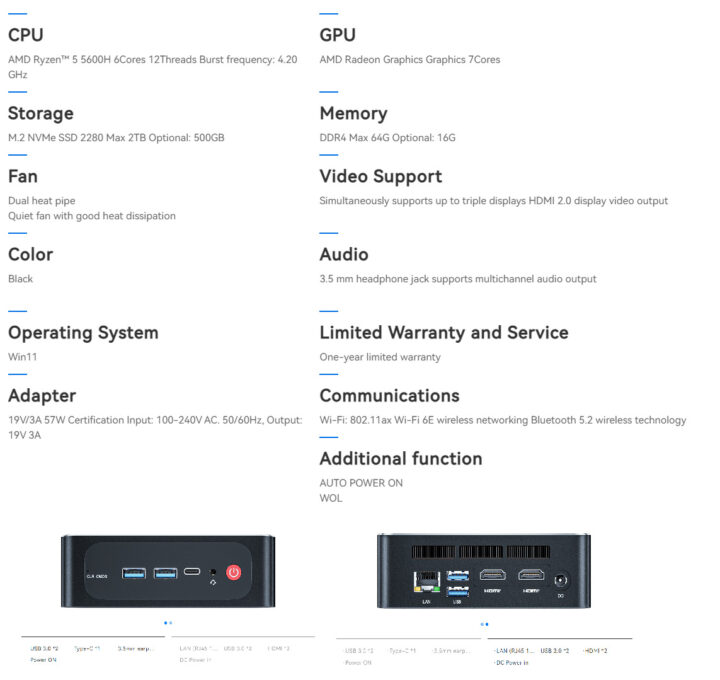
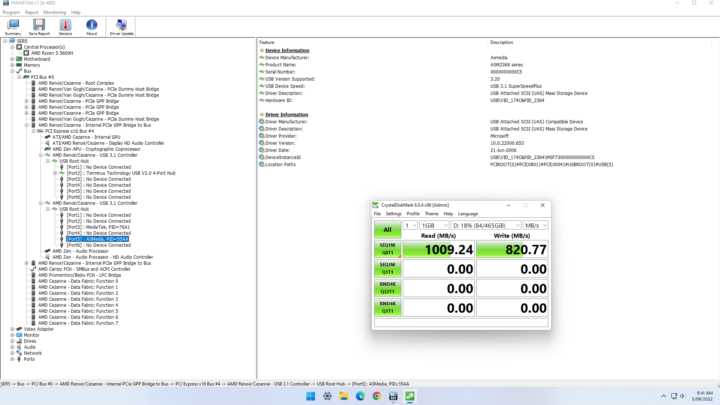


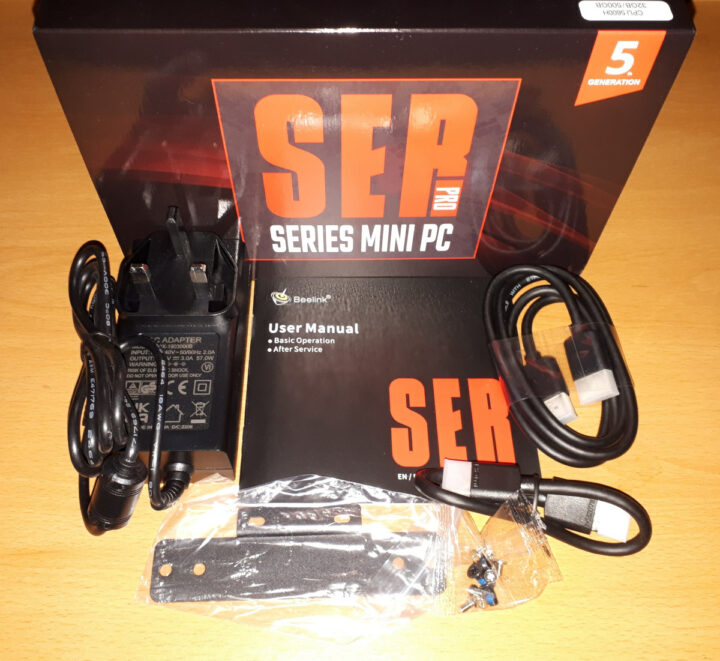
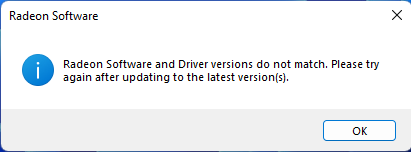
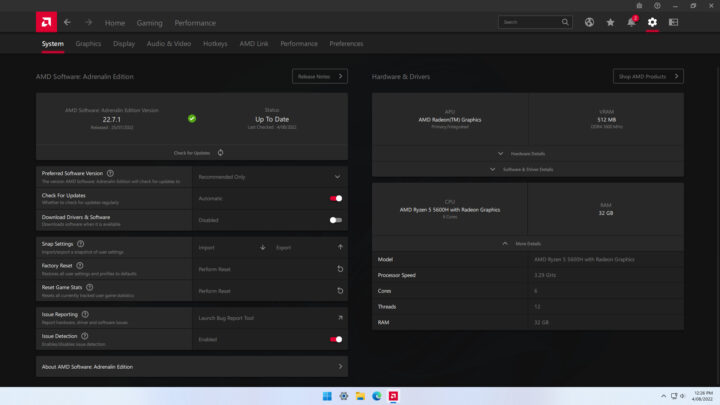


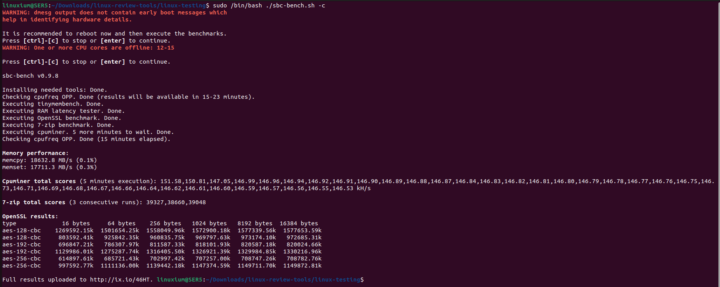
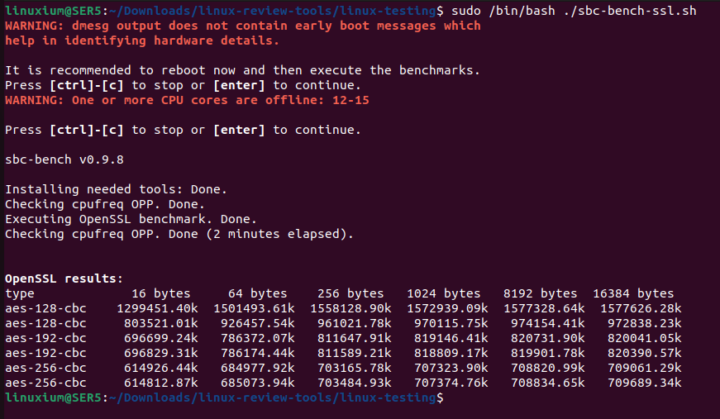
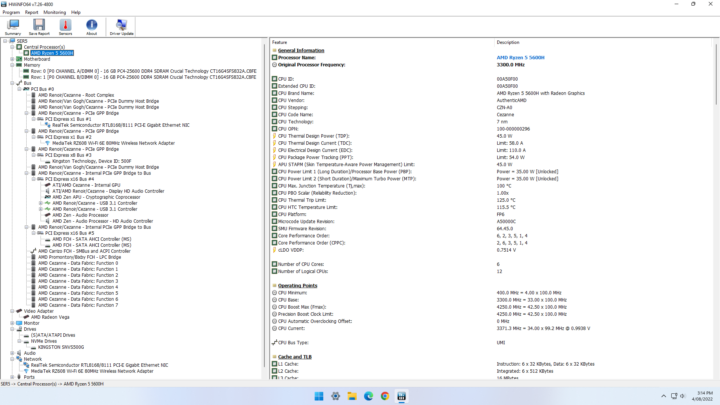
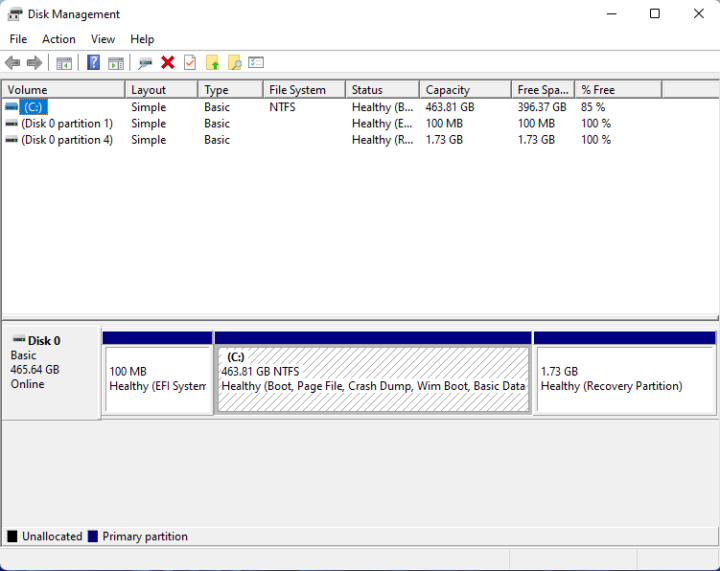
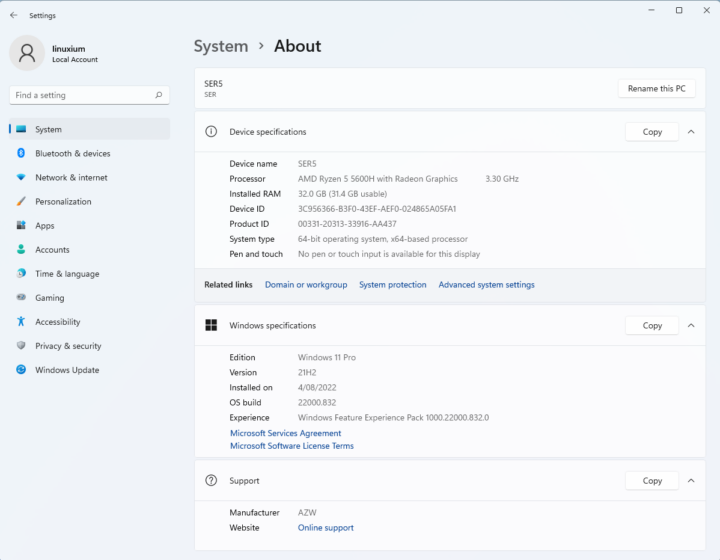
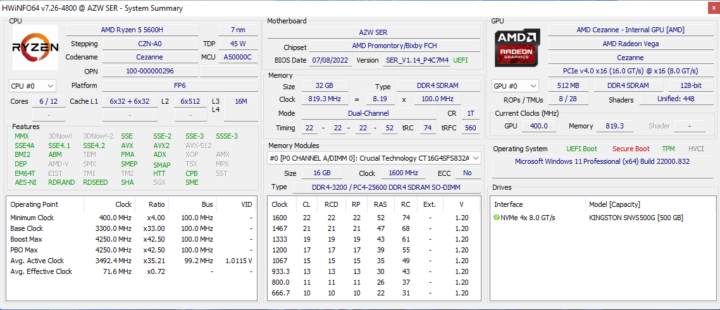
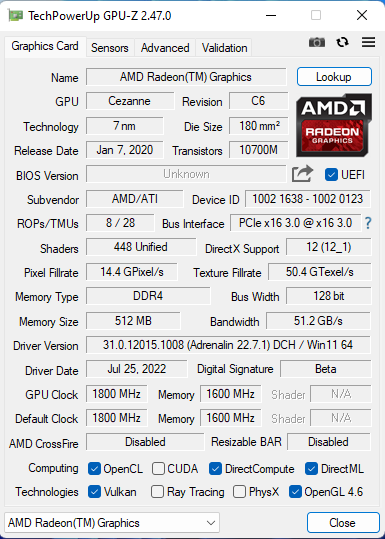
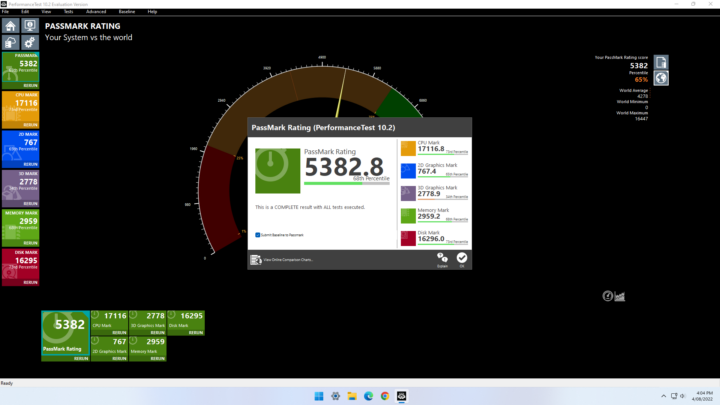
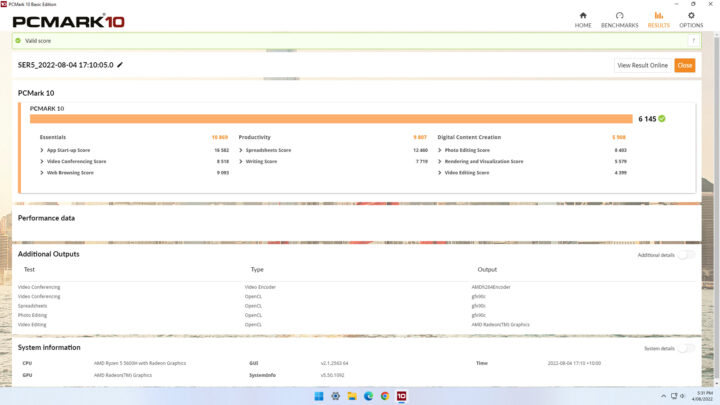
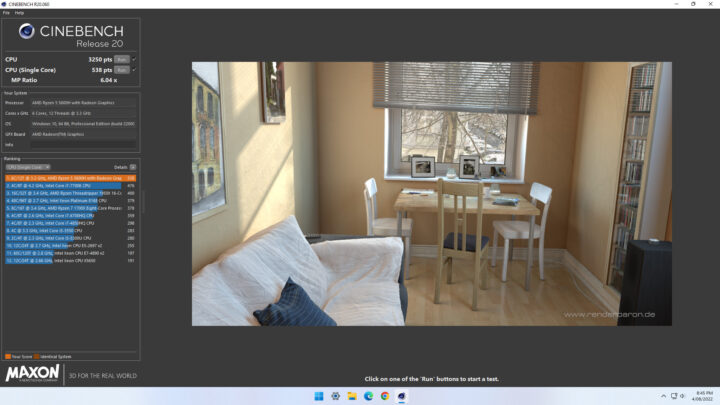
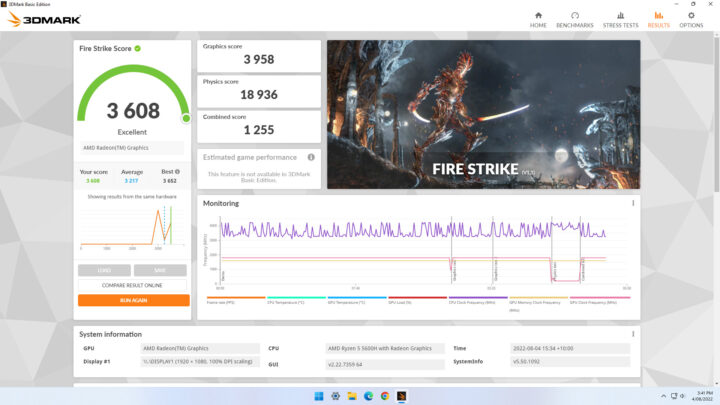
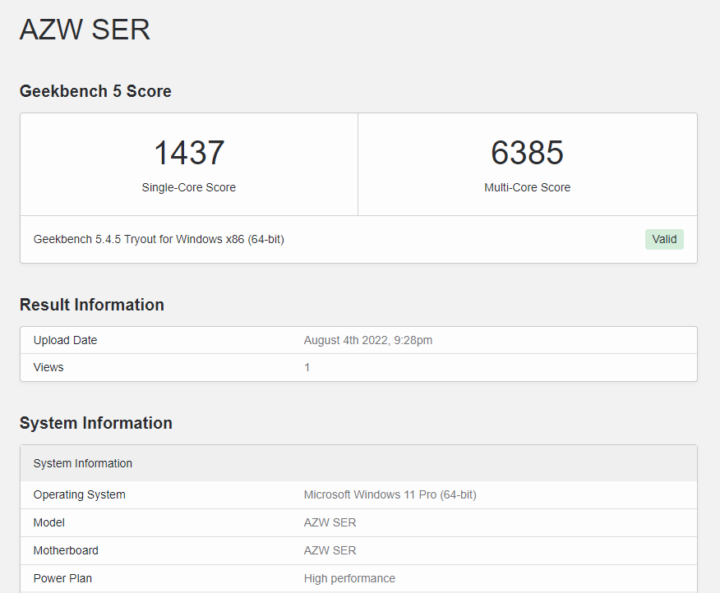
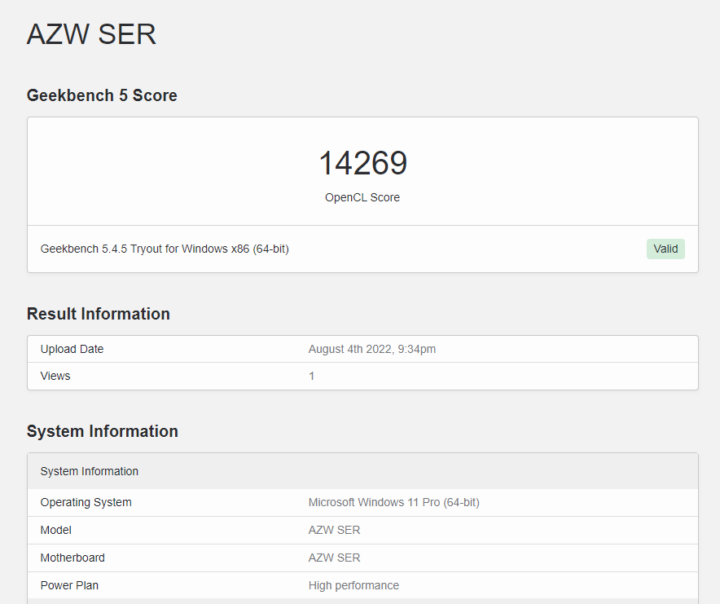
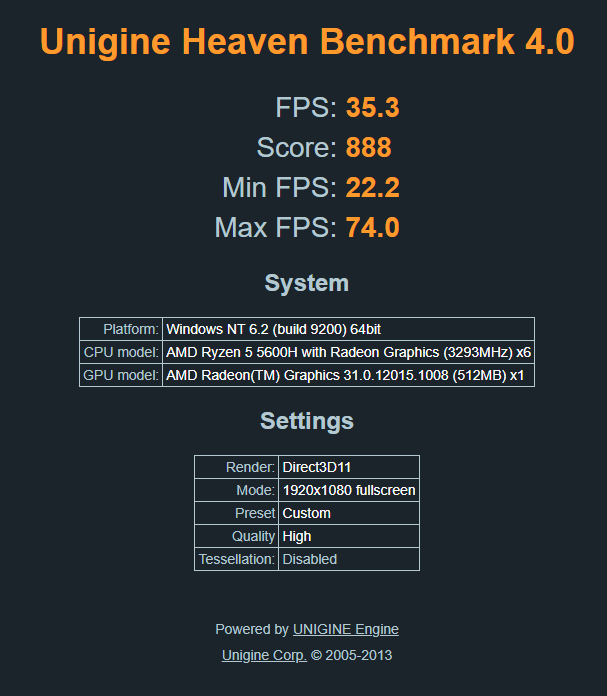
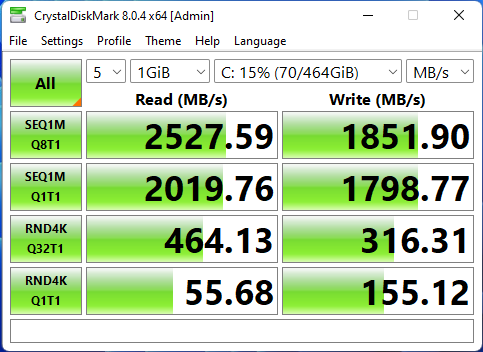
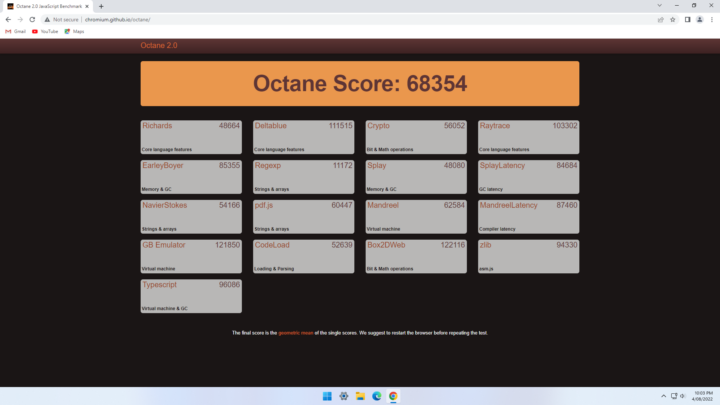
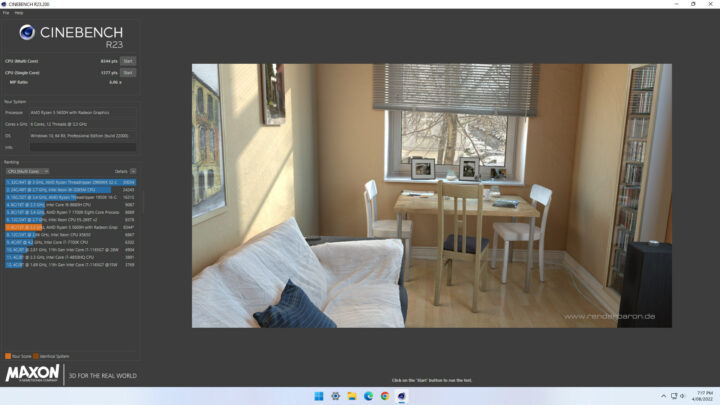

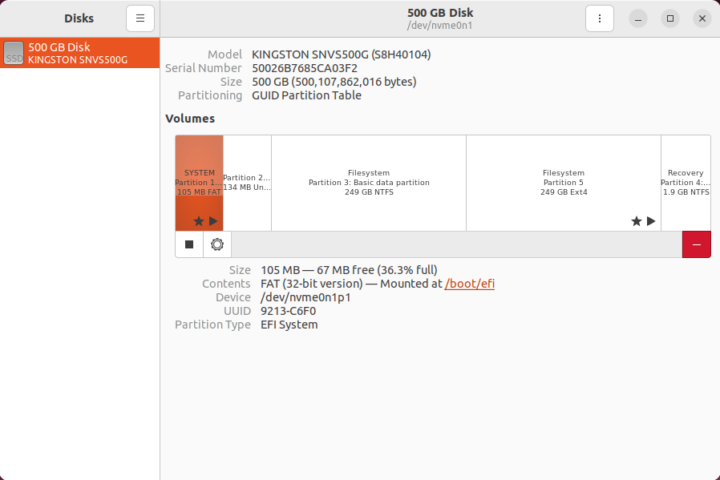
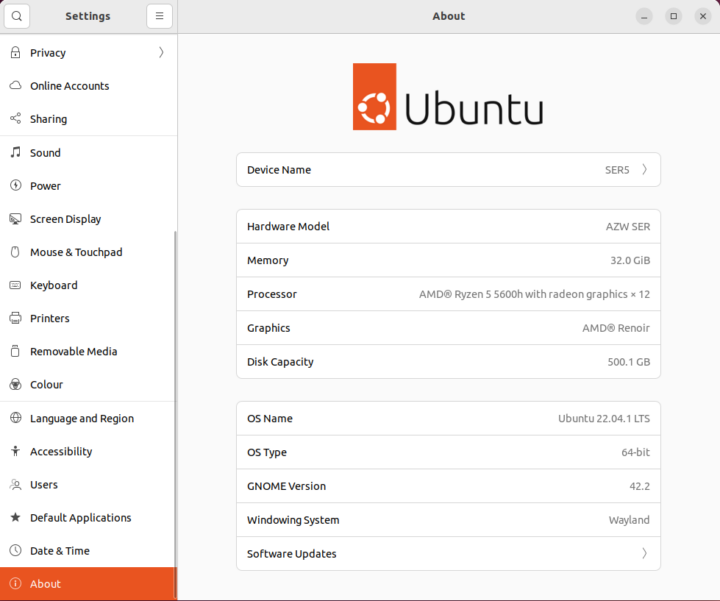
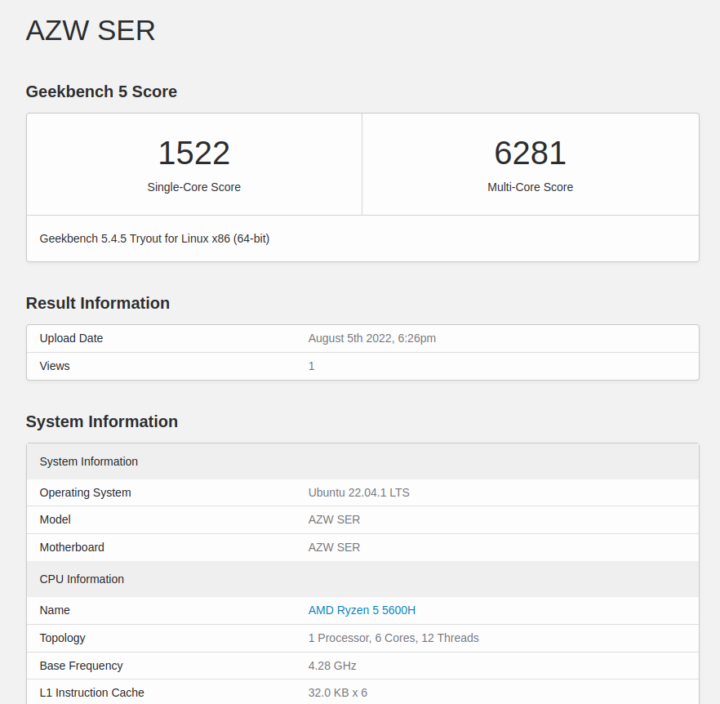
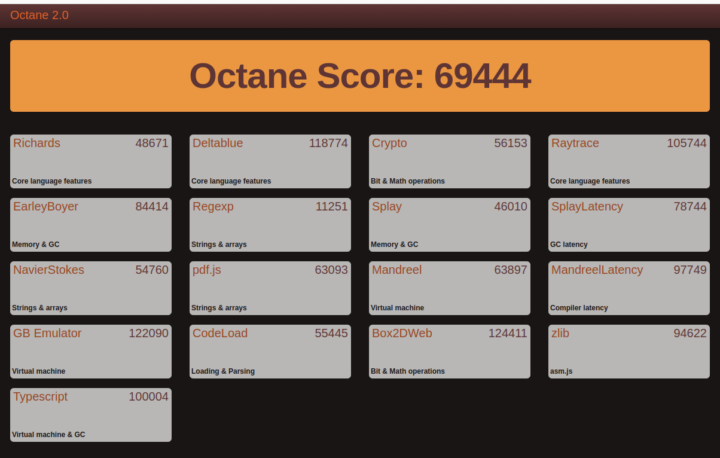
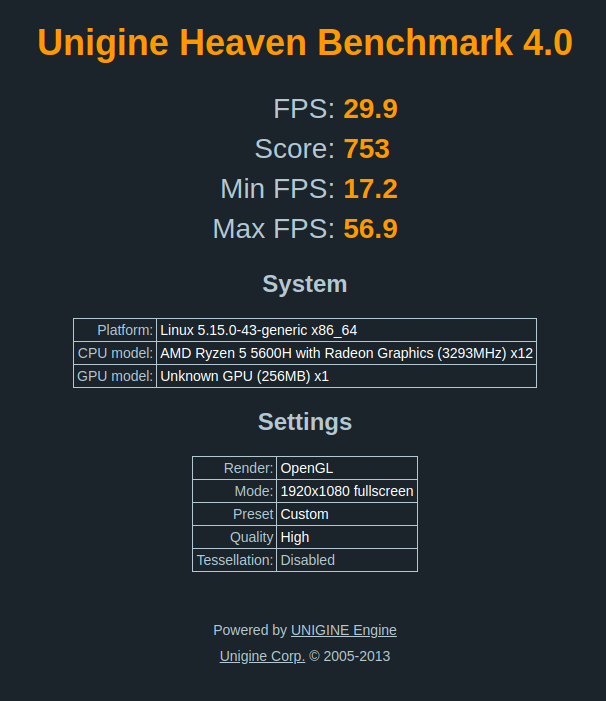
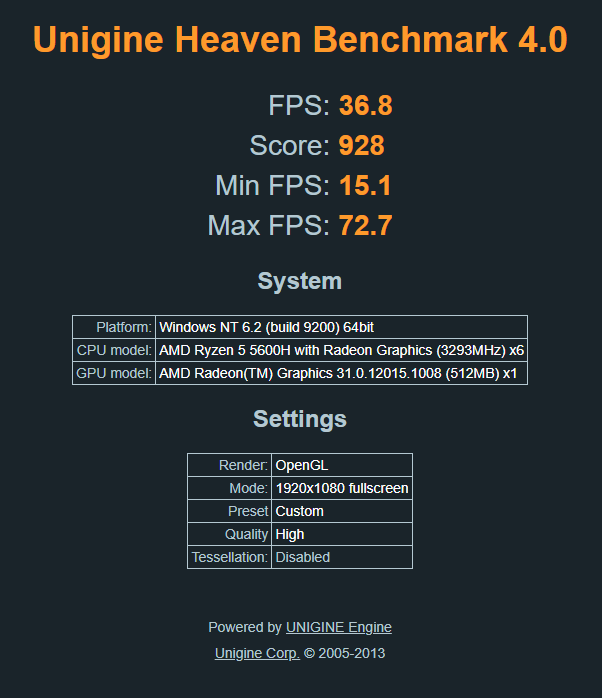
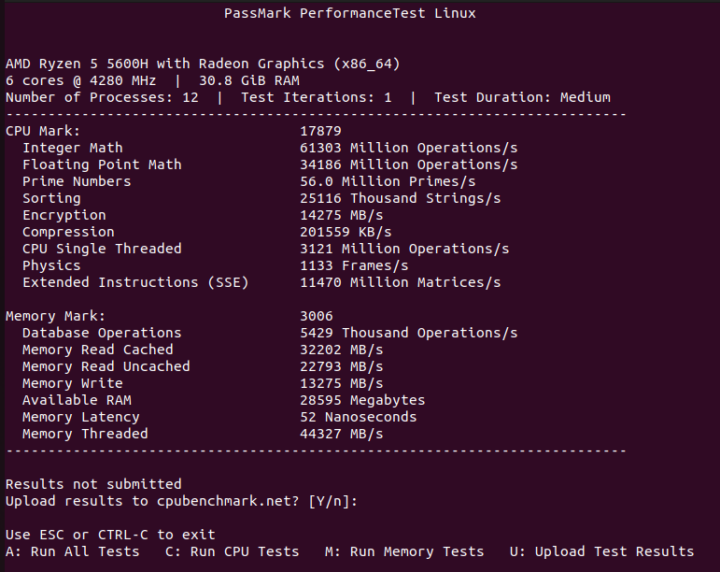
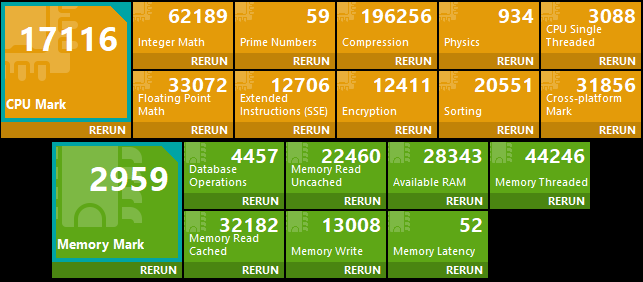


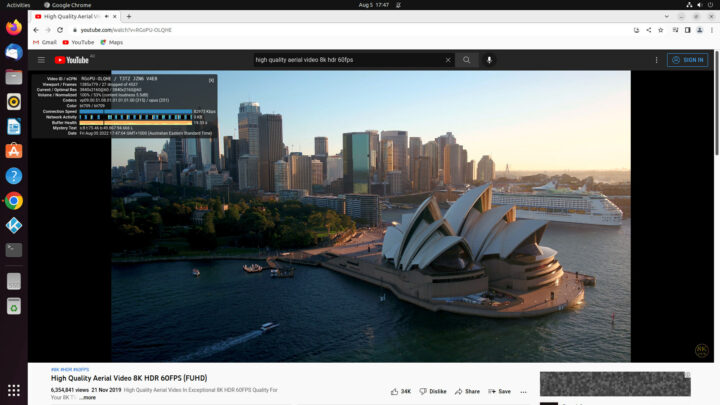
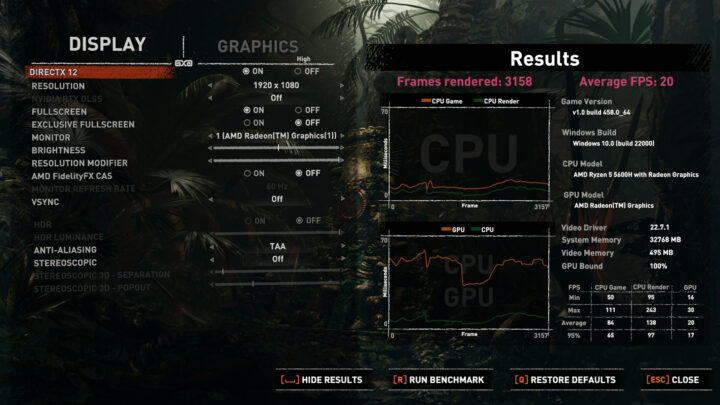
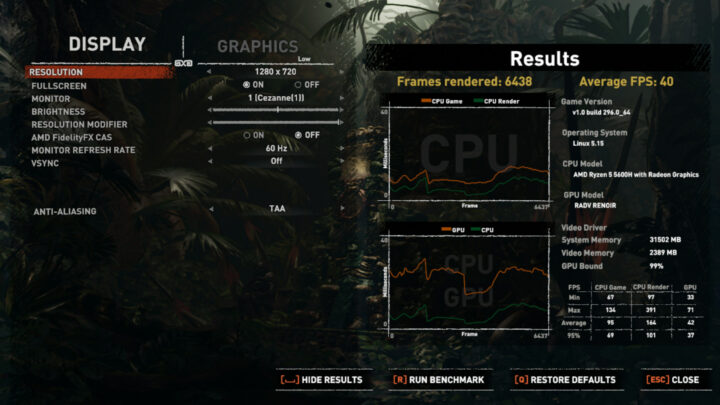
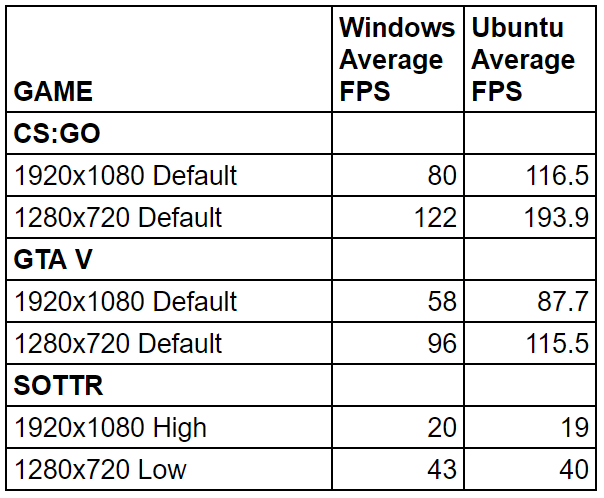
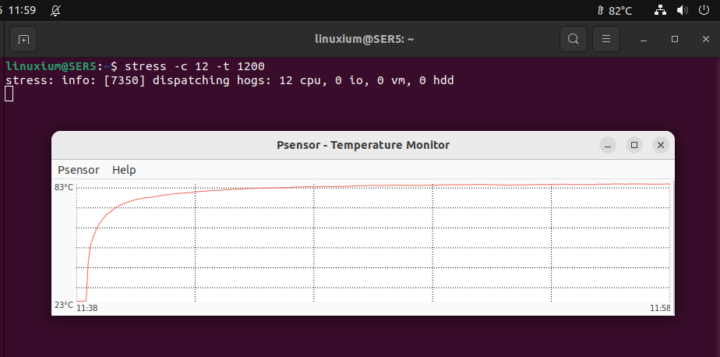
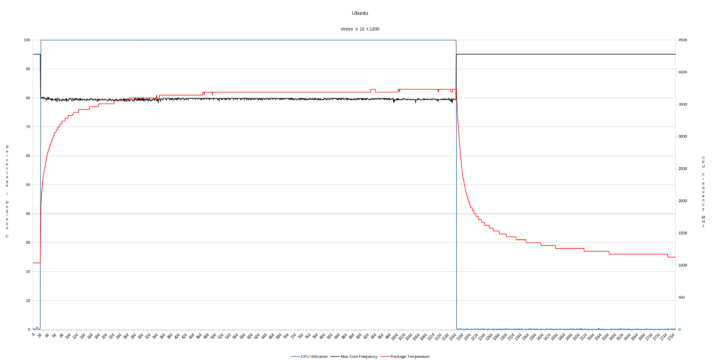



As for the inconsistent OpenSSL results. According to sbc-bench output cpufreq scaling happened while running the test (3272 – 4242 MHz).
Can you please rerun MODE=extensive sbc-bench.sh and then after a minute report from another shell the contents of /sys/devices/system/cpu/cpufreq/policy0/scaling_governor?
Also contents of /sys/devices/system/cpu/offline would be interesting.
I ran my ‘edited’ version of sbc-bench.sh in which I commented out a couple of lines so that it just runs the OpenSSL test in ‘extensive’ mode and it gave what look like correct results:
<code>
OpenSSL results:
type 16 bytes 64 bytes 256 bytes 1024 bytes 8192 bytes 16384 bytes
aes-128-cbc 1304100.96k 1501533.57k 1558133.50k 1572947.97k 1577317.72k 1577626.28k
aes-128-cbc 1302604.83k 1501480.60k 1558082.82k 1572957.87k 1577328.64k 1577609.90k
aes-192-cbc 1129372.19k 1275310.31k 1316397.99k 1326951.42k 1330001.24k 1330206.04k
aes-192-cbc 1129860.94k 1275264.77k 1316384.00k 1326933.33k 1329984.85k 1330195.11k
aes-256-cbc 996228.76k 1111020.99k 1139462.31k 1147360.60k 1149673.47k 1149861.89k
aes-256-cbc 997510.47k 1111167.02k 1139464.96k 1147376.64k 1149708.97k 1149850.97k
</code>
however the logs are not uploaded as this was commented out! I also had a loop running every 60 seconds concatenating the two files requested and it always reported ‘performance’ and ’12-15′ respectively. Interestingly this was the after the first cold boot of the day having not run any other applications other than to let the system settle down after booting and manually running a ‘checkload’ to ensure no (little) processor activity.
I then ran the full test as requested and the results became inconsistent like before. The log for this run is http :// ix.io / 47eV. Again the results from running
<code>
while true; do sudo cat /sys/devices/system/cpu/cpufreq/policy0/scaling_governor /sys/devices/system/cpu/offline | paste – -; sleep 60; done
</code>
in another shell showed ”performance 12-15′ repeatedly.
Thank you for the output! Could you please give latest version from Github another try?
Unfortunately the OpenSSL results are still inconsistent. The logs for three consecutive runs spread over an hour are uploaded to http :// ix.io / as 47mk, 47mw and 47mC.
Two months ago when testing parallel openssl executions I learned that on Intel scores with parallel execution (as much benchmark runs as cores/threads) are way lower compared to ARMv8 where combined scores scale linearly with core count and no drop in cpufreq could be observed.
Most probably it’s the same on AMD and the identical scores you got with one try were more or less by accident.
Quoting Willy with whom I discussed this back then amongst other things: ‘It’s due to the usual turbo mode limitations depending on instructions in use. AES uses AVX and most x86 cores have different turbo frequencies based on what’s used.
I remember a guy explaining that he was having better AES perf with an older poorl-optimized implementation than the latest one because the latest was instantly triggering the throttling while the previous one didn’t, and the perf improvement didn’t cover for the frequency losses.’
In a few days I’m getting two EPYC 7232P servers and will have a closer look at these things with AMD (though they’re Zen 2 and server parts).
Do we know if this can run the latest build of supermodel 3 at full speed? Looks like it could be a good emulation machine.
Interesting question as I’ve never tried emulators.
Is Supermodel 3 representative of emulator performance or should Batocera be used with specific ROMs?
If anyone has suggestions or comments I’d be willing to look into adding emulation performance to reviews if there is interest.
Having looked at reviews it seems these little boxes can do emulation up to switch. Obviously Wii u emulation might need the resolution dropped to 720p but it looks good. Supermodel 3 is a standalone emulator that emulates the sega model 3 arcade board. I assume the model 2 emulator will work though. This emulator only runs in Windows. Unfortunately I still can’t find an answer as to if this box can run the supermodel 3 emulator. This has gone through a graphic engine overhaul since I last used it on my main pc and it’s here the problem lies on if it will run on an igpu setup. I’m also trying to find out if Teknoparrot will also run but again can’t find anybody that’s tried that either ☹️ it’s the only thing stopping me going ahead and buying one ☹️ I would definitely advise adding emulation testing to reviews especially in the case of mini PC’s. I do have a main gaming pc but it’s just too costly to run it and these mini PC’s look like a good middle ground as long as you don’t go for the latest CPU ones as that bumps the energy drain up to more than I would like at the moment.
I’ve looked at ‘Supermodel 3’ and emulators in general and the main issue is locating virus-free ROMs that are legally available and are free. Unless I can find a legitimate site providing ROMs I won’t be adding emulators to the reviews.
Thanks for the article.
I’d like to ask if you had any trouble installing Ubuntu. I have the same machine and after installing the official Beelink Ubuntu 20.04 ISO, the PC gives me an error message about amdgpu and “green sardine”.
Installing the 22.04 from the Canonical repository is even worse because the installer only loads on safe mode.
Both alternatives only run after exiting recovery mode.
I had no issues installing the official 22.04.1 ISO from Canonical. I’d recommend trying the latest LTS ISO which is now 22.04.2, or, if adventurous, try 23.04 as you’ll get a later kernel and drivers.
Thank you. Will try the latest version.